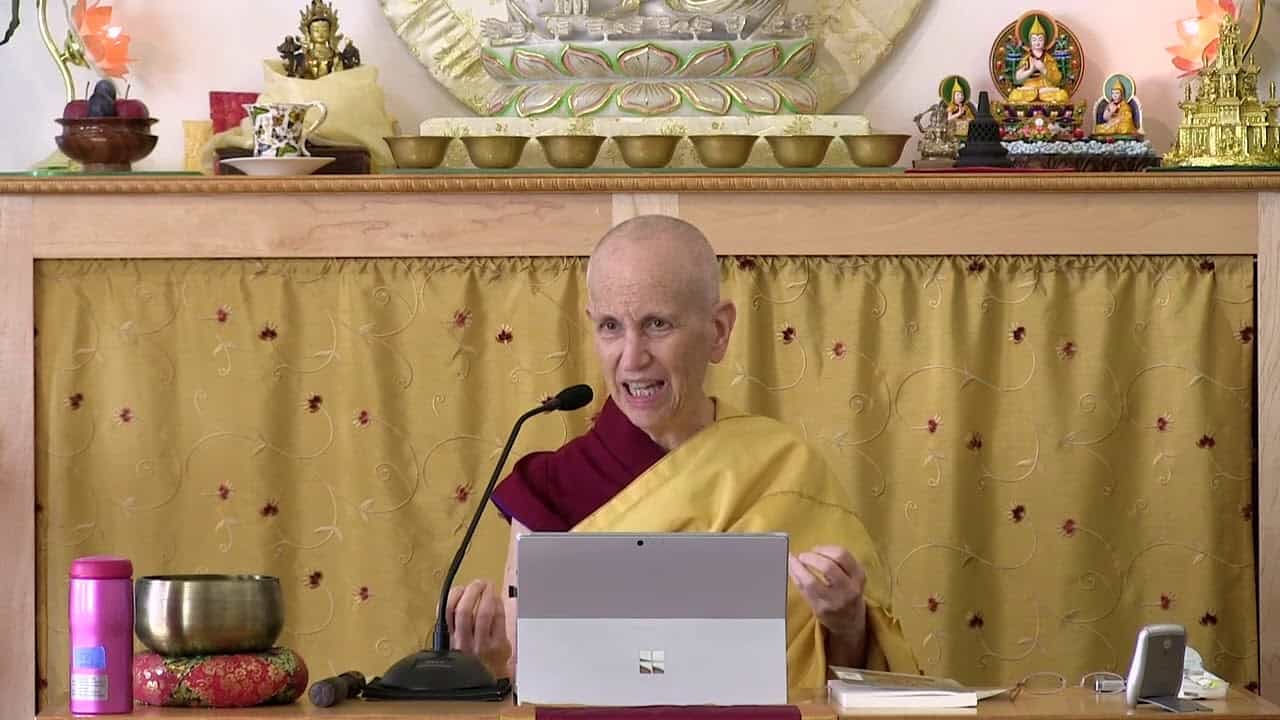Karma that ripens at death
63 The Foundation of Buddhist Practice
Part of an ongoing series of teachings (retreat and Friday) based on the book The Foundation of Buddhist Practice, second volume in “The Library of Wisdom and Compassion” series by His Holiness the Dalai Lama and Venerable Thubten Chodron.
- Examining how decisions we make influence our future experiences
- A complete action with three branches complete, yields three types of results
- One action could bring many results, many actions could bring one result
- Results from pairs of opposite actions from Pali sutta
- Is our pleasant, unpleasant, neutral experience always result of karma?
- Karmic seed ripening before death propels us to the next rebirth
- Many conditions and factors play a role in which karmic seed ripens
- Most heavy or proximate or most habitual karma
- How purification, bodhicitta, wrong views or anger influences the result
The Foundation of Buddhist Practice 63: Karma that Ripens at Death (download)
Contemplation points
- Venerable Chodron spoke about the seemingly unimportant decisions (SUDs) we make in our life. Choose one result you are experiencing now such as having made a new friend, positive feedback, a life with good environmental circumstances etc. Start by choosing something that is a little easier to track back so you can gain some immediate experience with this exercise.
- During your meditation time, select one virtuous action and one non-virtuous action and track each back, starting with the causes that led you to do the action, the motivation, the action itself, and its results.
- Consider how seeds won’t ripen unless certain conditions are present (water, fertilizer, soil, sunshine, etc). How is this also true with the results of karma? Make some examples. How can you use this awareness to inform the choices you make?
- Imagine a situation that drives you to anger repeatedly. Now imagine you wholeheartedly interrupt your anger by asking yourself “is this reaction, this situation, worth creating negative karma and destroying my virtue?” Repeat this meditation until you find yourself applying the antidote in “real life.”
Venerable Thubten Chodron
Venerable Chodron emphasizes the practical application of Buddha’s teachings in our daily lives and is especially skilled at explaining them in ways easily understood and practiced by Westerners. She is well known for her warm, humorous, and lucid teachings. She was ordained as a Buddhist nun in 1977 by Kyabje Ling Rinpoche in Dharamsala, India, and in 1986 she received bhikshuni (full) ordination in Taiwan. Read her full bio.


